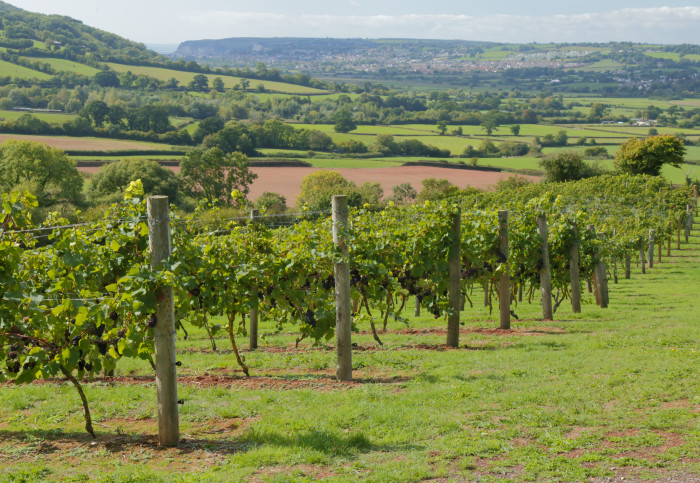CEP student wins a prestigious award with Sustainable Wines of Great Britain

A vineyard in Devon
Florence Hale has been awarded a prestigious inaugural award to increase the sustainability of Great Britain’s wine industry.
 Florence Hale, a student on the MSc in Environmental Technology in the Centre for Environmental Policy, has been awarded an Inaugural Scholarship to develop her project proposal on Increasing the Sustainability of Great Britain’s Wine Industry through Optimal Valorisation of Winery Waste.
Florence Hale, a student on the MSc in Environmental Technology in the Centre for Environmental Policy, has been awarded an Inaugural Scholarship to develop her project proposal on Increasing the Sustainability of Great Britain’s Wine Industry through Optimal Valorisation of Winery Waste.
Florence now joins the Viticultural Futures Group in the CEP overseen by Tilly Collins and Caroline Howe. Their interest in the environmental, social and economic sustainability of land-use change and the wine passion of PhD student Bethany Reyniers have led to a number of research projects and an increasing contribution to potential wine sustainability in the UK and internationally.
 In 2021, three MSc Thesis presentations at the ‘Ecology Across Borders’ conference addressed the motivations for, and barriers to, adopting sustainable viticulture in UK vineyards (Rebecca Simons), a comparative evaluation of sustainability in viticulture across established and emerging wine markets (Molly Easton) and an investigation of how UK Vineyard Stakeholders perceive Biodiversity (Emily Boothroyd).
In 2021, three MSc Thesis presentations at the ‘Ecology Across Borders’ conference addressed the motivations for, and barriers to, adopting sustainable viticulture in UK vineyards (Rebecca Simons), a comparative evaluation of sustainability in viticulture across established and emerging wine markets (Molly Easton) and an investigation of how UK Vineyard Stakeholders perceive Biodiversity (Emily Boothroyd).
Florence’s work aims to investigate how best to reduce, reuse and recycle winery waste and wastewater. As wineries and wine-producing regions generate substantial quantities of solid waste, particularly marc, more pressure is growing within the sector to plan for and implement optimising sustainable use of this waste. Historically, such waste has been exploited as a feedstock for value-added products such as
- Extraction of useful chemical constituents (e.g., industrial alcohol)
- Thermochemical conversion technology (e.g., biochar)
- Biological treatment of grape marc for value-added products (e.g., biogas)
- Agricultural applications (e.g., composting, animal feed)
As a feedstock with such a range of applications, winery waste is an opportunity for GB’s wine sector in which to extract greater holistic value. The project aims to produce a Tangible Impact Asset for Sustainable Wines of Great Britain; this will be well-evidenced advice on optimal wine waste management.
Supported by:

Article text (excluding photos or graphics) © Imperial College London.
Photos and graphics subject to third party copyright used with permission or © Imperial College London.
Reporter
Press Office
Communications and Public Affairs
- Email: press.office@imperial.ac.uk
